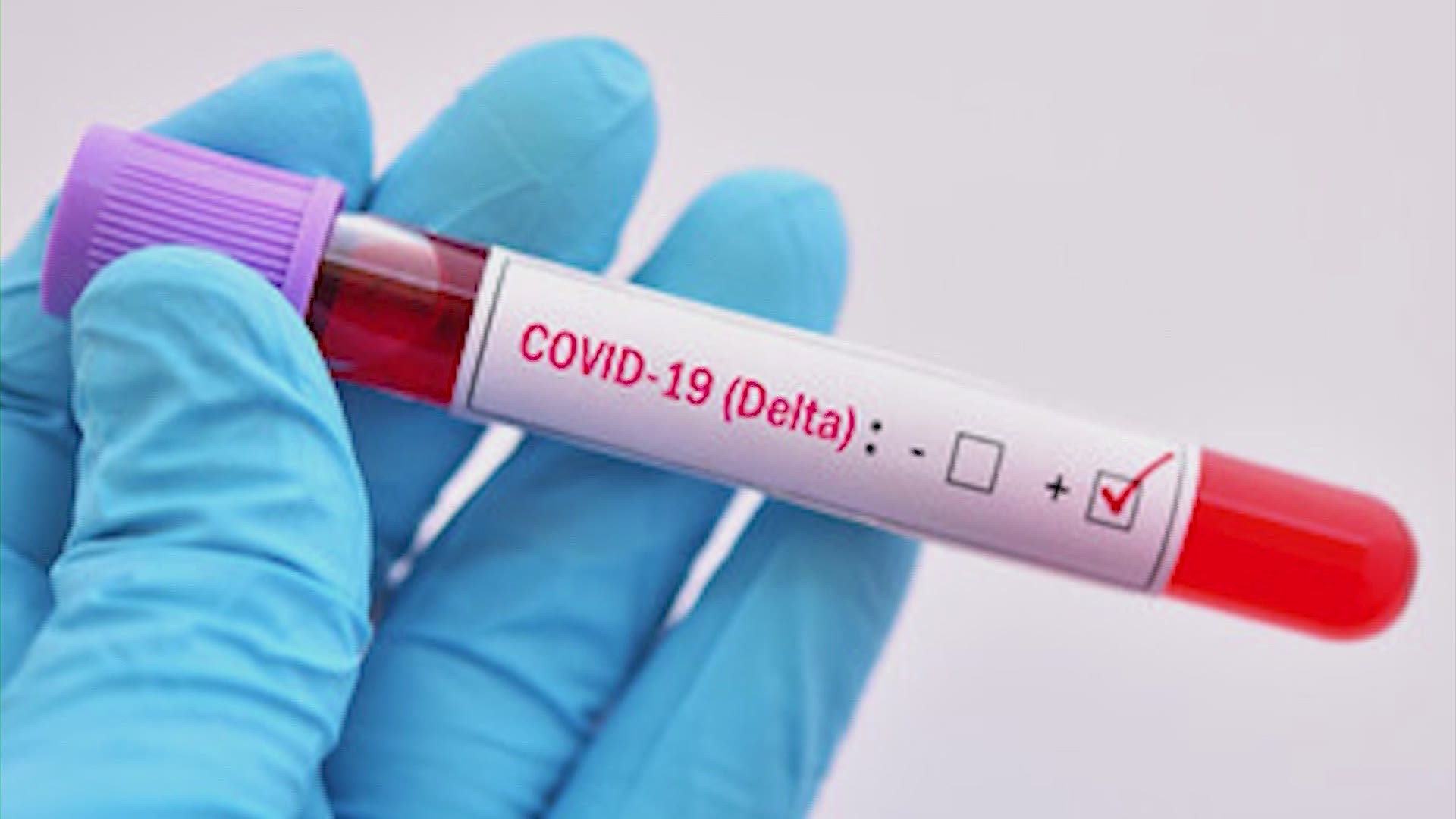HOUSTON — KHOU 11 has obtained new data which shows the Delta variant is spreading throughout Houston.
Wastewater sampling shows the strain has been detected in five times as many facilities recently as it was at the start of May. This is a story KHOU 11 reporter Stephanie Whitfield has been following.
Delta Variant
B.1.617.2, commonly called the Delta variant, is present in an increasing number of wastewater samples.
Of Houston’s 39 wastewater treatment plants:
- April 26, 2021: Detected at 1 plant
- May 3, 2021: Detected at 3 plants
- May 10, 2021: Detected at 0 plants
- May 17, 2021: Detected at 3 plants
- May 24, 2021: Detected at 2 plants
- May 31, 2021: Detected at 6 plants
- June 7, 2021: Detected at 4 plants
- June 14, 2021: Detected at 3 plants
- June 21, 2021: Detected at 15 plants
- The rate of increase of Delta variant in wastewater samples is slower than the U.K. variant increase earlier this year.
- The difference between then and now is the increasing penetration of vaccine in the community.
- Vaccines offer protection against variants, and this is another indication of the importance of getting vaccinated as soon as possible.
At the same time the Delta variant appears to be spreading, the presence of the U.K. variant is slowly diminishing.
U.K. Variant
B.1.1.7, commonly called the U.K. variant, is the most common in Houston wastewater samples.
Of Houston’s 39 wastewater treatment plants:
- February 23, 2021: Detected at 9 plants
- March 1, 2021: Detected at 28 plants
- March 8, 2021: Detected at 16 plants
- March 15, 2021: Detected at 39 plants
- March 22, 2021: Detected at 34 plants
- March 29, 2021: Detected at 36 plants
- April 5, 2021: Detected at 35 plants
- April 12, 2021: Detected at 36 plants
- April 19, 2021: Detected at 34 plants
- May 24, 2021: Detected at 20 plants
- May 31, 2021: Detected at 23 plants
- June 7, 2021: Detected at 29 plants
- June 14, 2021: Detected at 28 plants
“The Delta variant is becoming more commonly found across the city,” said Houston Health Department Chief Medical Officer Dr. David Persse.” It’s not one area specifically, we’re finding it in many different areas.”
As of the last test result, the Delta variant was found in 15 of the city’s 39 wastewater treatment plants.
It was first detected in one plant on April 26. The variant has spread since then.
But is it cause for concern?
“The evidence is increasing that this does cause more severe illness,” Dr. Persse said.
The concern is for those who haven’t gotten their shots, according to Dr. Persse.
“It’s spreading amongst those who are not vaccinated,” Dr. Persse said. “And those who are not vaccinated are predominately younger people, because up until recently you had to be 18 to be vaccinated. But even today you have to be 12 and above.”
The wastewater data shows the number of treatment plants where the alpha variant is being detected is slowly decreasing.
Dr. Persse said this makes sense, as the Delta variant appears to be taking over locally as the dominant strain.
Dr. Persse added if you’re not vaccinated, you need to be aware that the symptoms of the Delta variant are different. He said the symptoms are much more like the common cold.
“Here it is summertime, not many of us should be getting nasal congestion and sneezing and simple coughs,” Dr. Persse said. “This is not the time of year to be getting that, so if you’re getting those symptoms you need to be really worried that you’re getting the Delta variant.”
Dr. Persse says kids who are not eligible for vaccines should still be wearing masks in public and socially distancing when possible.

